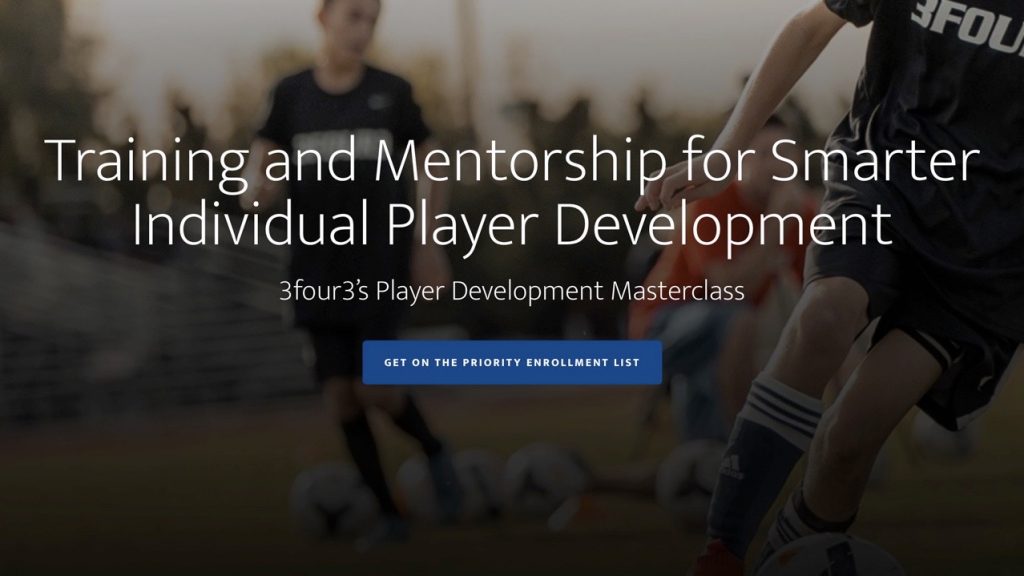
In this episode, we dive into MLS Next’s newly announced initiatives aimed at reshaping youth soccer in America.
We break down the four key changes:
1) a scholarship requirement mandating one player per club,
2) an extension of the “Pro Player Pathway” adding U15 teams,
3) a Talent ID weekend for scouting, and
4) new U13 playing time rules mandating equal minutes.
We argue these initiatives are more about perception and consolidating MLS’s monopoly than fostering true player development.
We highlight how the scholarship rule fails to address the pay-to-play barrier, the Talent ID weekend risks non-MLS clubs losing talent, and the playing time mandate mimics recreational soccer, potentially harming competitive development.
We advocate for a free-market system with promotion and relegation, asserting it would incentivize clubs to fund talent and elevate competition, potentially making MLS the world’s top league.
Packed with bold insights and real-world examples, this episode is a must-listen for coaches, parents, and players navigating the youth soccer landscape. And media who actually care about learning and being truthful in their coverage.
00:00 Intro
03:20 MLS Next Initiative #1 – Scholarshipping Players
10:23 Sub: How Pro/Rel Solves this Problem
12:01 Initiative #2 – Extension of the “Pro Player Pathway”
14:39 Initiative #3 – “Talent ID Weekend”
16:15 Sub: How MLS Makes Their Scam Sound Good
19:09 Sub: Are Practitioners Also Tricked by the Narrative?
23:30 Initiative #4 – Playing Time Requirement
28:23 Sub: Little Accountability for Players and Families
30:49 Sub: Tab Ramos Provides Context
30:57 Sub: Are MLS Academies Getting Enough Good Competition?
35:25 Should You Choose MLS Next or ECNL?
40:55 Diego Luna vs Jose Gallegos
43:57 Paxton Aaronson
54:17 Why MLS Can Be the Best League in the World
Premium Education for either Coaches or Parents
If you are a coach or a parent of a player, we’ve also codified and made available the remarkable work of a coach who trained and shepherded many, many players from the age of 9 all the way to graduating them to being professionals.
The products that show you how this was done, is what sponsors this episode.
Get aboard a proven path, a legitimately proven path, not something copied or synthesized from elsewhere, or worse. No, but rather a first hand account and curriculum directly from the source, from the practitioners themselves, whose work is unprecedented in the American soccer environment.
For Coaches
Learn the methodology at 343coaching.com.
If you’re coaching 7v7, we’ve got you covered at 7v7coaching.com.
For Parents
You don’t have to be lost and confused.
Learn to properly guide and develop your kid through the maze and pitfalls that is American soccer (from the folks who have actually done it).
Gain access at 343masterclass.com.
Never miss new episodes:
- Subscribe to 3four3 FM on iTunes
- Subscribe to 3four3 FM on Stitcher
- Subscribe to 3four3 FM on Spotify
Coaching Education Program
This is brought to you by the 3four3 coaching education program.
Learn more and join over 1000 coaches using our proven possession-based methodology.

Father of an MLS (non-academy) player, who probably hates the MLS ecosystem almost as much as you guys. FWIW This change does not impact my son as he is beyond these age groups.
Curious about your take on Initiative #4 (Playing Time Requirements) for the younger age groups. Do you feel the same about model adopted by the Belgian FA in 2000 with several key initiatives to promote development over winning and fixed-term results? They implemented 4 quarters where all subs had to come in each quarter, no tables, 8v8, etc to promote development of more kids vs early developers who were simply better athletes getting all the opportunities. When the more technical kids mature they have not been left behind at an early age.
Was their ‘golden age’ affected by these changes, and if so why do you feel differently about the MLS policy? Is there a Pro-Rel impact to these decisions being successful? Or was it just luck of several generational talents coming together in the same era?
I’m a strong believer from what I have personally witnessed that clubs prioritize selecting the best athletes at an early age in order to ensure ugly wins and short term success for financial reasons rather than focusing on developing elite soccer players.
But rather than force entry into games, why not just remove some of the barriers to substitutions to allow coaches to develop and reward kids who may not be physically ready to play 60-80 min?